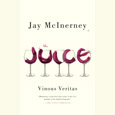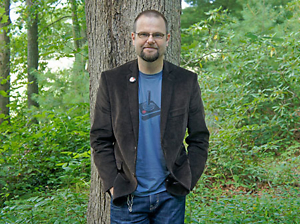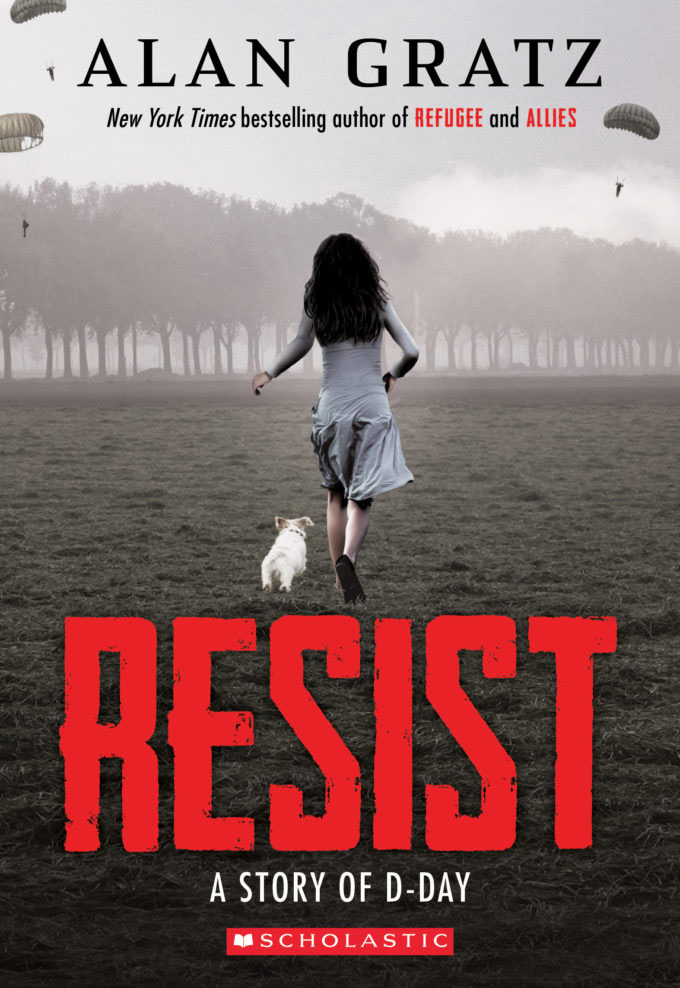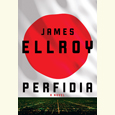A Stranger in Quite a Few Places
Madison Smartt Bell talks to Chapter 16 about his new story collection, Zig Zag Wanderer
Madison Smartt Bell may be best-known as a novelist, but he has long been recognized as a gifted short story writer, as well. His second collection of stories, Barking Man (1990), was described by The Los Angeles Times as “haunting,” “compassionate,” and “extraordinary.” In the twenty-four years since Barking Man, Bell has published nine novels, including his widely acclaimed trilogy on the Haitian revolution, along with a couple of biographies, a book on creative writing, and a guide to his adopted home city of Baltimore, but fans of his short fiction have had to content themselves with an occasional piece in Harper’s or Granta. With Zig Zag Wanderer, published this spring, readers finally have another story collection from Bell that is every bit as brilliant and memorable as its predecessors.
 Zig Zag Wanderer is, in fact, two collections, each containing nine stories, bound together in what’s known as tête-bêche. The stories themselves are a diverse lot, ranging from a stunning piece on 9/11, “Fall On Me,” to the comic gem “Small Blue Thing,” which considers the Edgar Allan Poe household from the point of view of the famous raven—who’s actually a crow. Several of the stories are set in the physical and spiritual landscape of Haiti, territories with which Bell is intimately familiar. Every piece in Zig Zag Wanderer is enlivened by the supple prose and exquisite narrative tension that are characteristic of all Bell’s work.
Zig Zag Wanderer is, in fact, two collections, each containing nine stories, bound together in what’s known as tête-bêche. The stories themselves are a diverse lot, ranging from a stunning piece on 9/11, “Fall On Me,” to the comic gem “Small Blue Thing,” which considers the Edgar Allan Poe household from the point of view of the famous raven—who’s actually a crow. Several of the stories are set in the physical and spiritual landscape of Haiti, territories with which Bell is intimately familiar. Every piece in Zig Zag Wanderer is enlivened by the supple prose and exquisite narrative tension that are characteristic of all Bell’s work.
The book’s publisher, Concord Free Press, is a unique non-profit venture that describes itself as an “ongoing experiment in generosity.” All CFP books are given away free through their website or selected bookstores, including Parnassus Books in Nashville. The recipient’s only obligation is to make a donation, in any amount, to a charity or a person in need and then go to the CFP website to record the gift. CFP also asks that the book be passed along to another reader who will make a gift in turn. (Bell suggests that his own readers consider making a gift to either Fonkoze
or the Lambi Fund of Haiti.) Print runs of CFP’s books are small, and each copy is numbered, so the donations can be tracked, but the whole arrangement operates on the honor system. Zig Zag Wanderer is the press’s ninth book, and the venture has generated more than $395,000 in recorded donations to date.
Bell answered questions from Chapter 16 via email.
Chapter 16: The stories in Zig Zag Wanderer are set in diverse places — Haiti, Paris, London, New York, etc. In fact, you’ve always wandered pretty widely in your work. Do certain places spark your imagination in singular ways?
Bell: Lives I might have had, I guess. I’ve always been more interested in imagining the lives of others than in depicting my own. If I can get a toehold in a different culture, that feels very liberating. And since living in New York in my early twenties, I’ve had a real fascination with variations of urban life.
Chapter 16: There are plenty of wanderers, pilgrims, fugitives, and exiles in your work, people who can’t find a place of rest. Is it fair to say that they’re a chief fascination of yours?
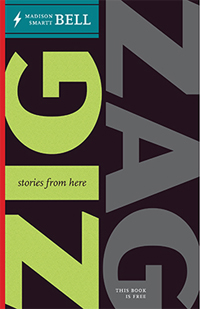 Bell: Pilgrims especially — so many of my books do involve religious pilgrimage some way or other—masked, perverted, or straight-up. On the cheaper side of things, the fugitive exile wanderer is an easily available romantic figure. Then again, I’ve been a stranger myself in quite a few places around the Western Hemisphere, a situation with the right mix of ease and discomfort to start a notion for a story going.
Bell: Pilgrims especially — so many of my books do involve religious pilgrimage some way or other—masked, perverted, or straight-up. On the cheaper side of things, the fugitive exile wanderer is an easily available romantic figure. Then again, I’ve been a stranger myself in quite a few places around the Western Hemisphere, a situation with the right mix of ease and discomfort to start a notion for a story going.
Chapter 16: You write about 9/11 in this collection, and it’s an important part of your last novel, The Color of Night. Does that event still haunt you, and can you see yourself writing about it again?
Bell: It’s part of our history, so apt to leak into our narratives one way or another. 9/11 losses are part of the backstory of Fleur Carnivore, a little novel I recently finished, set in New York City. Haunted, I dunno. My predictions were wrong at the time. I figured we were gonna become like Israel, or Ireland in the bad old days, with bombs going off in our public spaces every few weeks. There has been some of that but way less than I thought likely—school shootings do a lot more damage. The worst consequence of 9/11 is indirect—we have become a nation that flouts international law in order to torture prisoners, and we do it on an alarmingly large scale.
“Fall On Me,” the 9/11 story in Zig Zag, was written almost immediately after the event, the period where when any of us saw a plane in the sky we felt afraid of it. It was the most miserable writing experience of my life by far (I’m not one of those suffering writers; I usually have a good time), but it did accomplish the kind of catharsis I was (unconsciously) after. I needed to write it to accommodate the event in my own psyche and also, secondarily, to respond to a lot of yak going around at the time about how 9/11 was the end of aesthetics for us, blah blah, you couldn’t make art any more after that, etc.
Color of Night’s different because it was written a good deal later on. I had a calmer control of the subject by then. And of course it’s a superbad devil’s-eye view of it—for the most part anyway.
Chapter 16: You’re known for being drawn to some very dark, violent themes, and nobody could accuse you of putting a happy face on anything, but there are places in your work where a sort of bright, hopeful light shines through. The ending of the title story in this collection is an example. I wonder if you seek or hope for those bright moments as you write. Are you surprised by them?
Bell: The weird thing is that I’m an optimist, malgré tout. So I automatically write toward as positive a conclusion as a plot situation’s plausibility allows. The idea of catharsis applies here too, I think. And contrast. Whatever light you are able to strike will shine brighter in a dark place.
Chapter 16: Turning to the business side of things, how did your involvement with Concord Free Press come about?
Bell: They do have a curious business model, giving their product away. Stona Fitch is a friend whom I met years ago at a reunion of Princeton writers. We hit it off, and when he started up the Concord project I observed with interest. The stories seemed like the obvious choice when he asked me for a book—I had more uncollected than I put into Zig Zag—and then their design idea turned out to be way cool.
Chapter 16: One problem with the CFP model is that it seems a little bit cruel to bibliophiles. I mean, I want the donations to continue, and I want other people to read your stories, but I also want to keep the book! Is this unenlightened of me?
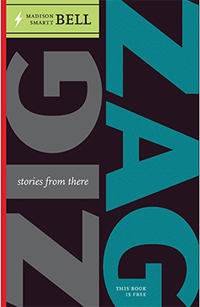 Bell: Well, yeah. It’s an inhibitor for signing the books too, though Stona did give me a special dispensation to sign books for people that came to events. Meanwhile people do sell them on eBay, which is what Concord really doesn’t like to see happen. Basically their power of enforcement is zero, and that’s not where their head’s at either. They give you something pretty nice and ask you to respond in a certain way. Some don’t, but they can track enough that do to offset the ones that don’t, and there’s plenty of people they don’t track.
Bell: Well, yeah. It’s an inhibitor for signing the books too, though Stona did give me a special dispensation to sign books for people that came to events. Meanwhile people do sell them on eBay, which is what Concord really doesn’t like to see happen. Basically their power of enforcement is zero, and that’s not where their head’s at either. They give you something pretty nice and ask you to respond in a certain way. Some don’t, but they can track enough that do to offset the ones that don’t, and there’s plenty of people they don’t track.
Book collectors are some of the best readers out there, and they combine this with a smidge of compulsion, I think. They are also my best audience in a way; I have a lot of respect for them. If some of them need to keep a book for their collections they can always give a little extra to Fonkoze or the Lambi Fund, and even if they don’t they will not shipwreck the enterprise.
Then there’s the person who needs to keep the book for the content, the one who is going to read it repeatedly over time. Maybe that’s not absolutely enlightened behavior — hey, it’s an attachment, I can see that, but a completely enlightened person doesn’t need to read a book at all, right? You can just sort of sit there and glow.
Chapter 16: Rumor has it that you’ve been working on a memoir. Can you tell us about that?
Bell: It’s true. But it’s kind of a weird memoir in the sense that it says very little about me. I’m not sure if that’s a recipe for success, really. We’ll see. Got my fingers crossed.
Chapter 16: Any other upcoming projects, literary or otherwise, we can look forward to?
Bell: Ah, well, I have these vast and elaborate plans for—whoops, gotta go! Man from Porlock’s at the door.

Maria Browning is a fifth-generation Tennessean who grew up in Erin and Nashville. A graduate of Mount Holyoke College, she has attended the Clothesline School of Writing in Chicago, the Moss Workshop with Richard Bausch at the University of Memphis, and the Sewanee Writers’ Conference. She lives in White Bluff.

